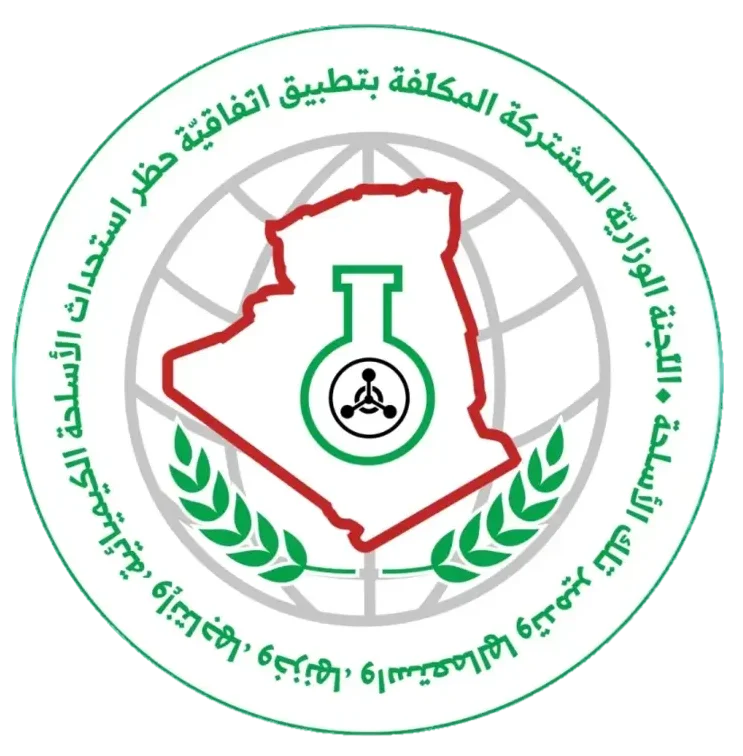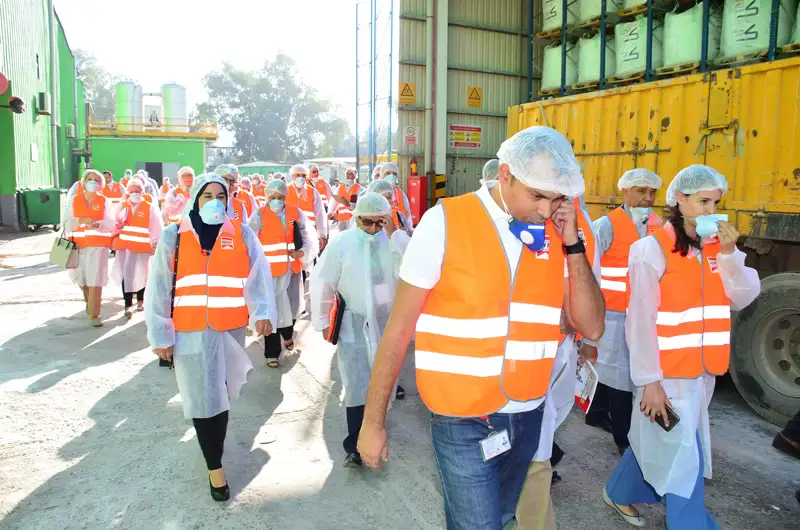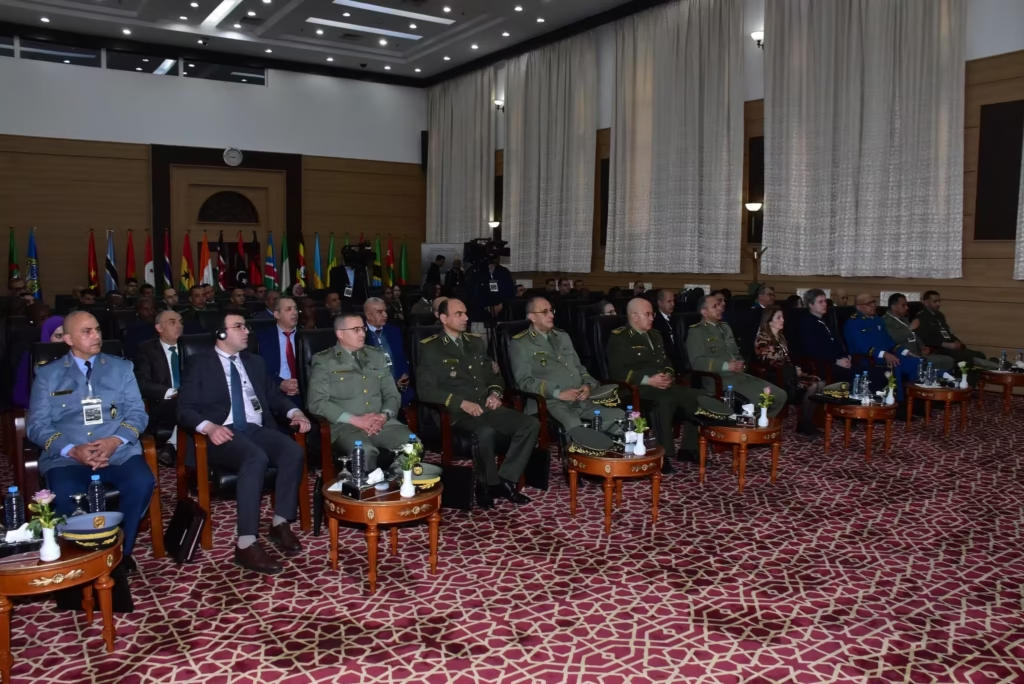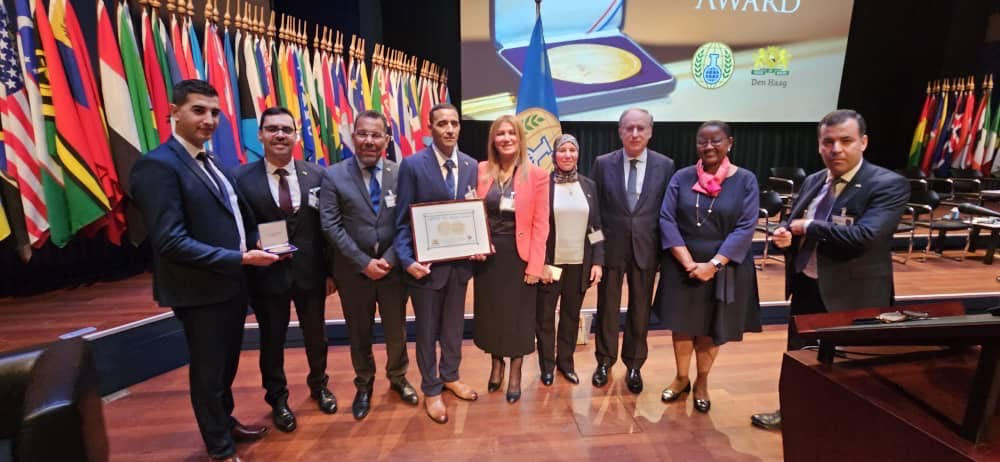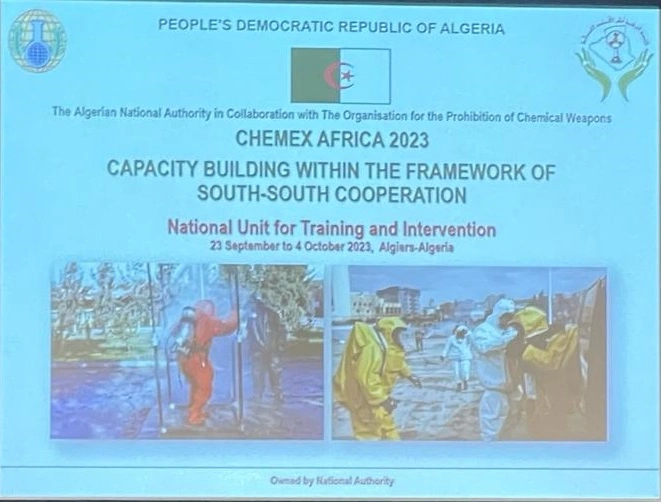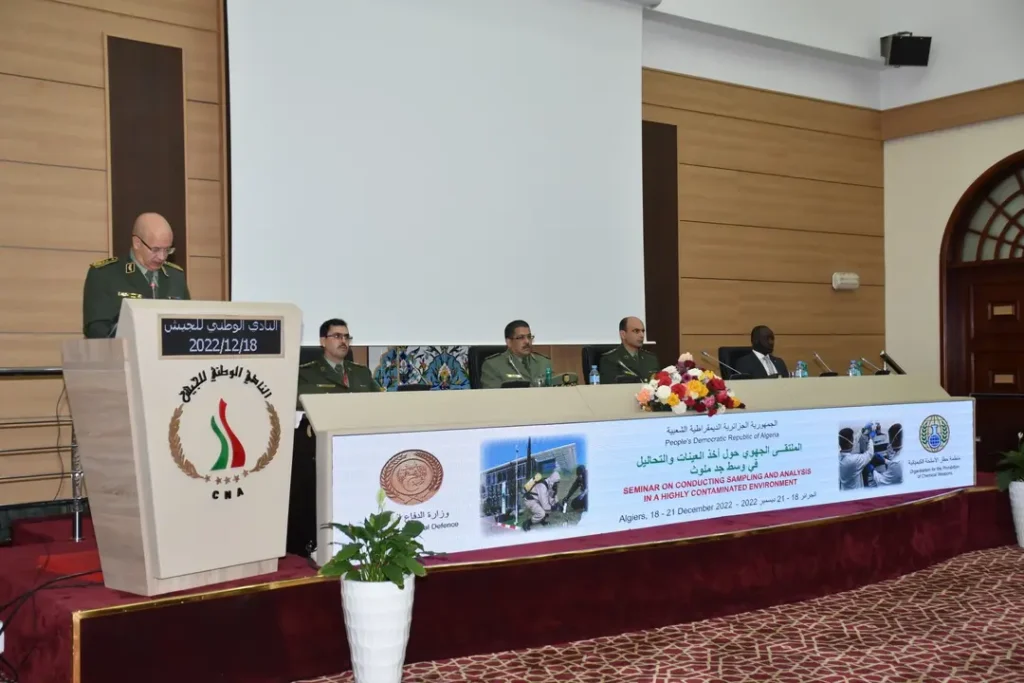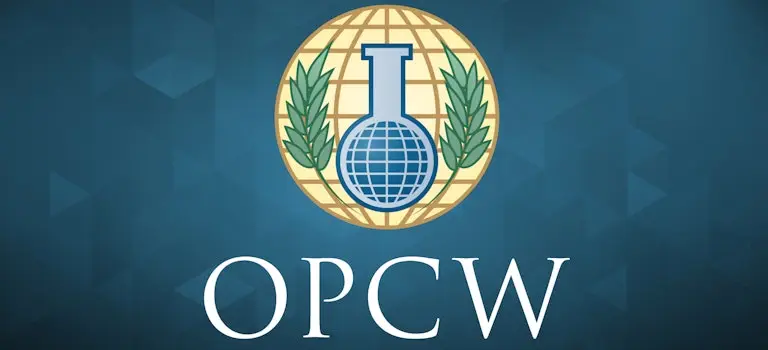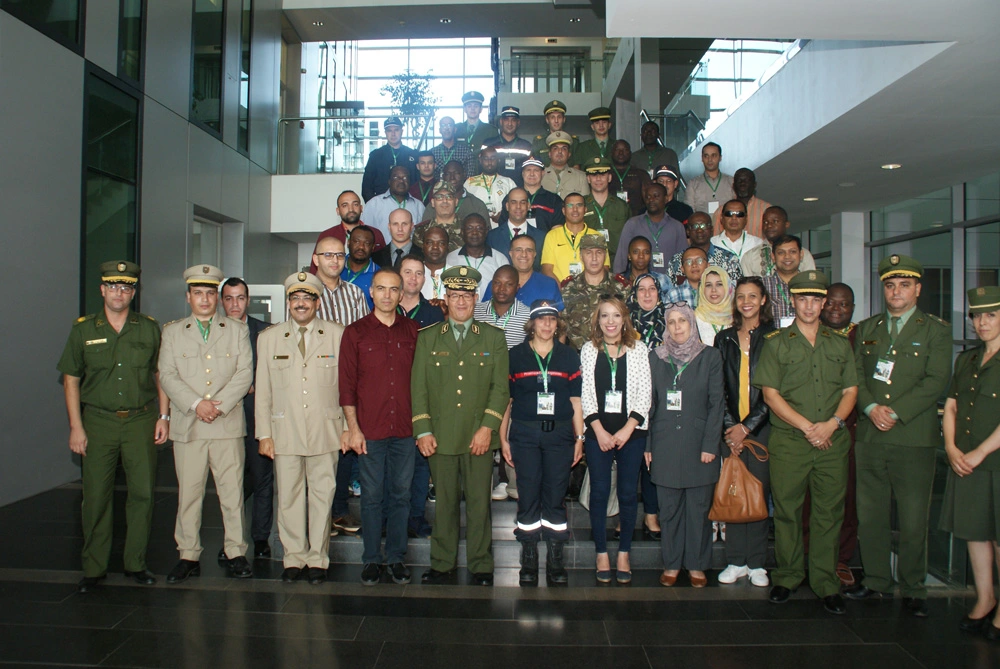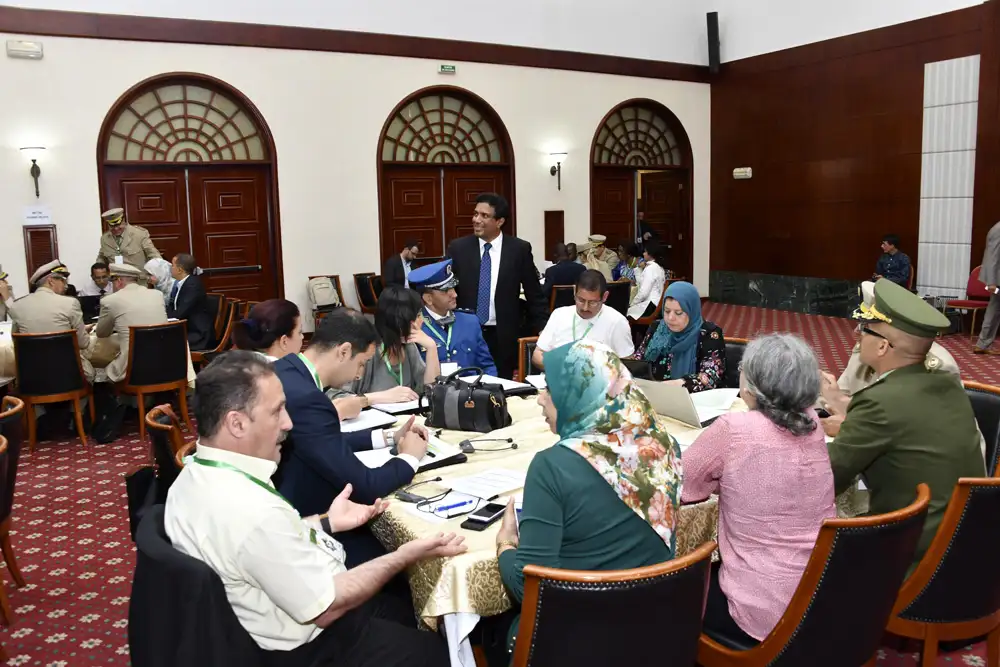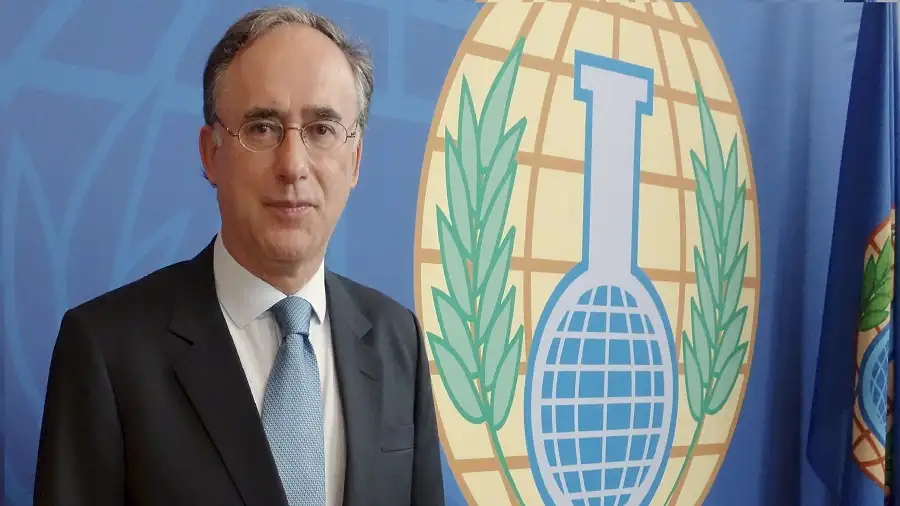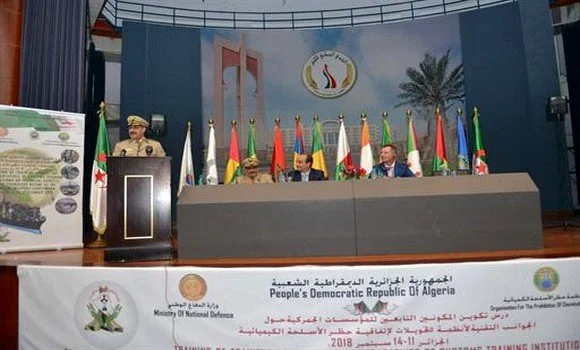As part of its cooperation with the Organization for the Prohibition of Chemical Weapons, the Ministry of National Defense organized a seminar on compliance with the obligations of Article VI of the Chemical Weapons Convention (CWC) from September 24 to 26, 2019, at the National Army Circle. The seminar was led by OPCW and national experts.
The opening of this seminar was chaired, on behalf of Lieutenant General, Vice Minister of National Defense, Chief of Staff of the National People’s Army, by the Secretary General of the Ministry of National Defense, Major General Ghris Abdelhamid.
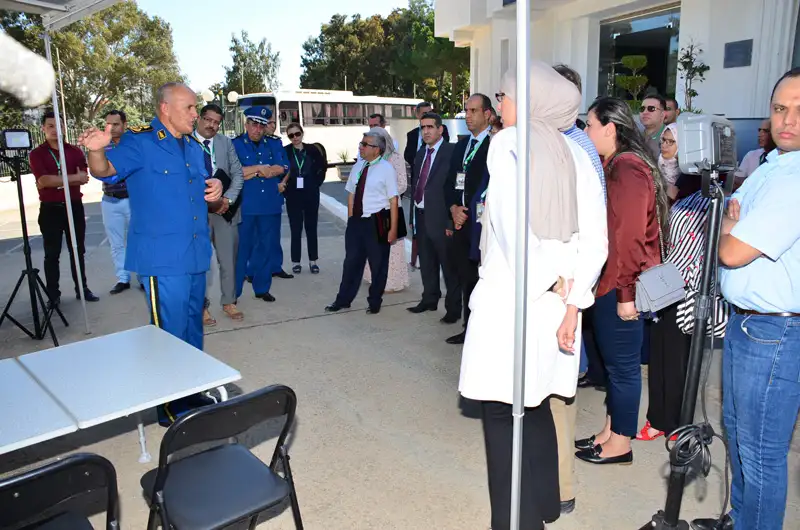
In his inaugural address, the Secretary General of the Ministry of National Defense highlighted Algeria’s leading role in the implementation of the CWC: “As a member of the Executive Council, since the Convention’s entry into force in 1997 until today, Algeria has worked throughout this period for its rigorous implementation and advocates for the promotion and strengthening of Africa’s position within the Organization, vigorously defending our continent’s interests and concerns, within the framework of the Convention’s universality.” He added: “It is in this spirit that Algeria has organized several activities, including most recently a regional seminar on chemical safety and security,” while emphasizing the major role our country plays in promoting general and complete disarmament in various international forums.
Finally, the Secretary General of the Ministry of National Defense emphasized that raising awareness among national stakeholders about best practices and new approaches adopted in transfer regimes would strengthen the legislative and regulatory framework related to the implementation of the obligations of Article VI of the Convention and, at the same time, create a framework for consultation and coordination at the national level to minimize the risk of malicious and/or abusive use of chemicals targeted by the Convention. Regarding the role of the National Authority in this area, the Executive Secretary of the Interministerial Committee for the Implementation of the CWC stated: “The responsibility of the national authority is not limited to strengthening declaration procedures by eliminating disparities in import and export operations and verifying implementation and compliance with the Convention, but also to smoothing the way by addressing past shortcomings and helping economic operators adopt industrial safety and security standards by disseminating documents covering the latest technological advances in this area and analyzing the facts observed during industrial inspections.”
To this end, the Executive Secretary emphasized that the National Authority has taken steps to modernize and improve its technical capabilities by implementing an information exchange system with economic operators. The submission of declarations, which previously took place in paper form, will now be done electronically via a website, with personalized and secure access.
He also stated that a subcommittee responsible for drafting annual declarations and carrying out inspection and verification missions has been created, which has further strengthened existing relationships with the chemical industry, academia, and scientists, and made a valuable contribution to the implementation of the Convention.
The work of this seminar included fifteen (15) presentations, generally addressing the verification regime under the CWC, the specifics of the annual declaration, declarable activities and the role to be played by relevant stakeholders, as well as inspections of declarable plant sites and the related obligations vis-à-vis the OPCW.
The seminar program also included three (03) exercises on the identification of declarable activities, the methodology to follow to complete the formalities of the declaration to be sent to the OPCW and this in the case of transfer of chemical products and inspectable factory sites.
